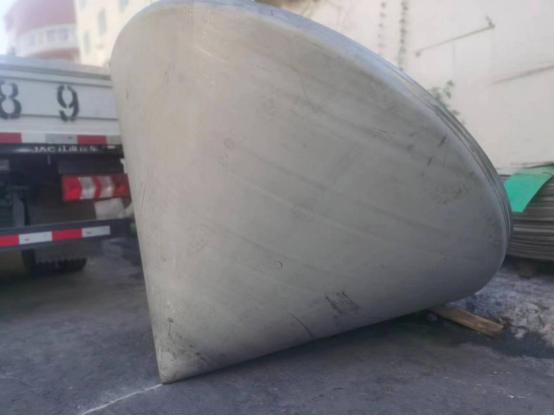
The first step in head processing is selecting the right raw materials, which impacts the final product's quality. For example, stainless steel and carbon steel heads require different materials. Stainless steel must meet industry standards, and thorough inspections ensure that the raw materials' physical and chemical properties meet processing requirements.
Additionally, proper processing equipment must be prepared to meet design specifications. Quality equipment ensures efficiency and accuracy throughout the process.
Head Processing: Blanking, Forming, and Heat Treatment
Head Processing: Blanking, Forming, and Heat Treatment
The processing begins with blanking, where cutting equipment shapes the raw material. This sets the foundation for precise subsequent steps.
Next is forming, achieved through stamping or spinning, depending on the size and shape of the head. Small-diameter heads typically use stamping, while larger heads are formed using spinning, where sheet metal is shaped through rotational pressure.
The head then undergoes heat treatment to eliminate internal stress and improve mechanical properties. The heat treatment process may vary based on the material used.
Finishing Processes: Machining and Polishing
Finishing Processes: Machining and Polishing
After heat treatment, the head is subjected to machining allowance treatment, which includes grinding and polishing to achieve a smooth and flat surface that meets design specifications.
Choosing the Right Forming Method
Choosing the Right Forming Method
When selecting a forming method, stamping is ideal for small-diameter heads, while spinning is better suited for larger heads. The choice depends on the size and shape requirements of the head.
Why Choose Us?
Why Choose Us?
Our advanced processing techniques and commitment to quality ensure precise, efficient, and reliable products. Whether you need custom solutions or advice on the best forming method, we're here to help. Contact us today to see how we can support your manufacturing needs.






